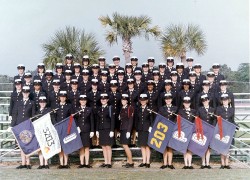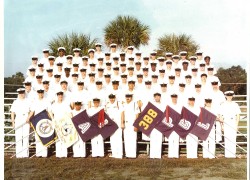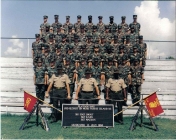Specialty Summary. Inspects, maintains, modifies, tests, and repairs propellers, turboprop and turboshaft engines, jet engines, small gas turbine engines, and engine ground support equipment (SE). Manages aerospace propulsion functions and activities.
Duties and Responsibilities: Plans, organizes, and directs aerospace propulsion maintenance activities. Interprets and implements directives and publications pertaining to maintenance functions, including environmentally safe maintenance practices. Determines resource requirements, including facilities, equipment, and supplies. Inspects and evaluates maintenance activities.
Advises, performs troubleshooting, performs engine health management, and determines repair procedures on aircraft engines. Diagnoses and repairs malfunctions using technical publications and Interactive Electronics Technical Manuals (IETMS). Solves maintenance problems by studying drawings, wiring and schematic diagrams, technical instructions, and analyzing operating characteristics of aircraft engines and propellers. Inspects, certifies, and approves completed maintenance actions.
Removes, installs, inspects, repairs, and modifies engines, engine modules and components, and propellers and propeller components. Disassembles and assembles engines and propellers adhering to prescribed procedures. Prepares engines and propellers for installation, storage, or transportation. Tests components using bench mockups and test equipment. Installs and removes engines on test stands, and operates, evaluates, and performs test stand functions on engines. Accomplishes operator maintenance on test stands. Inspects and maintains engine ground SE. Operates and performs operator inspections on related SE. Selects, uses, and cares for special tools, hand tools, and test equipment. Uses and disposes of hazardous waste and materials.
Analyzes, interprets, and recommends maintenance actions based on unscheduled engine removals and engine monitoring system data. Coordinates with the base engine manager to analyze scheduled engine removals; recommends forecast actions to the weekly or monthly maintenance schedules.
Specialty Qualifications:
Knowledge. Knowledge is mandatory of: mechanical, hydro mechanical, electrical, and hydraulics principles applying to jet and turboprop engines, and propellers; oil analysis principles; wear metal criteria and guidelines; concepts and application of maintenance directives; using and interpreting diagrams and technical publications; and the proper handling, use, and disposal of hazardous waste and materials.
Education. For entry into this specialty, completion of high school with courses in general science, mechanics, or mathematics is desirable.
Training. For award of AFSC 2A631B/C/D or E, completion of a basic, suffix specific, aerospace propulsion maintenance course is mandatory.
Experience. The following experience is mandatory for award of the AFSC indicated:
2A651. Qualification in and possession of AFSC 2A631B, C, D, or E. Also, experience in functions such as installing, maintaining, or repairing aerospace aircraft jet engines.
2A671. Qualification in and possession of AFSC 2A651. Also, experience performing or supervising functions involving installation, repair, testing, or modification of engines or propellers.
2A691. Qualification in and possession of AFSC 2A671. Also, experience managing or directing repair activities for aerospace aircraft engines, propellers, and associated maintenance functions.
Other. For entry into this specialty, the following are mandatory:
Normal color vision as defined in AFI 48-123, Medical Examinations and Standards.




